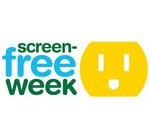 Social media has done much to change the way we live. Now, thanks to a new Facebook app that lets people record their final wishes, it also can affect what happens after we die.
Social media has done much to change the way we live. Now, thanks to a new Facebook app that lets people record their final wishes, it also can affect what happens after we die.
“If I Die” is a new Facebook app that allows individuals to post a final message to their Facebook wall for loved ones to see after they’ve died – with the help of three carefully selected “trustees” who are entrusted with posting the message.
App users can record videos or write messages to be published posthumously. Upon their death, their messages may be published all at once or released according to a designated schedule.
The app was created by Wilook, an Israeli company led by Eran Alfonta, who says the app responds to a basic human need. “We all have things to say and don’t necessarily have the audience with the patience to hear us,” Alfonta told the website Mashable. “Actually, we all want to leave something behind. We all want to leave a stamp behind us.”
We at Unplug and Reconnect think the app presents a very clever way to say the things we’d like our loved ones to know. But of course, we would argue that it’s better to tell our loved ones such important things – like how much they mean to us – while we are still alive.



